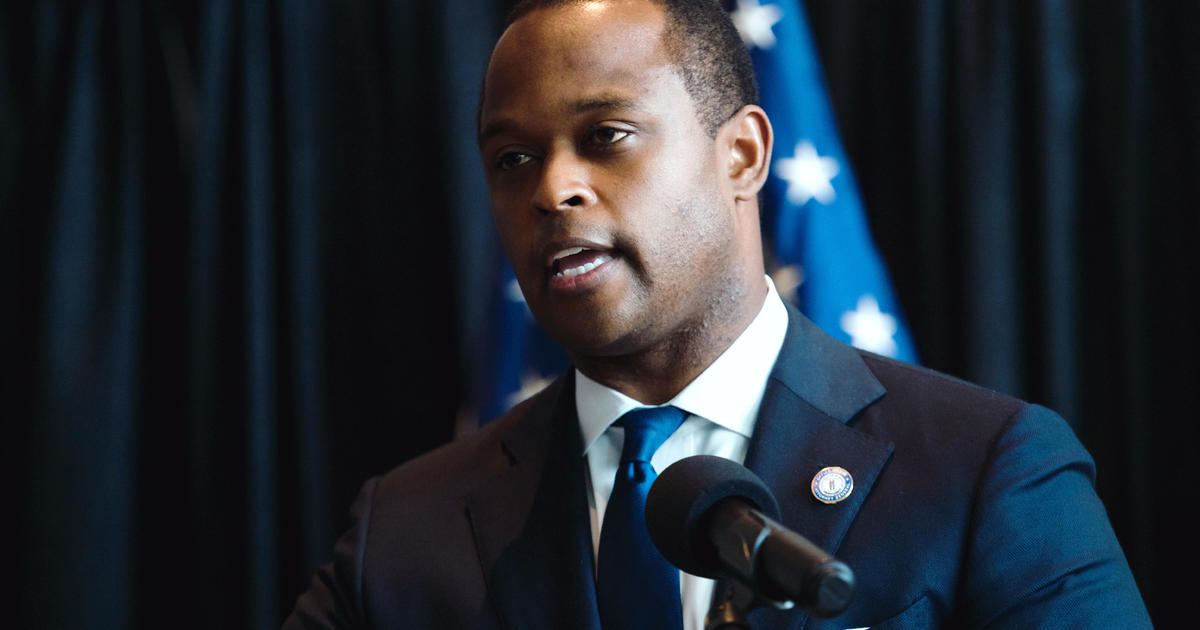Kentucky Attorney General Daniel Cameron filed a motion on Wednesday asking the court to dismiss an anonymous grand juror’s request to speak publicly about the grand jury proceedings in the Breonna Taylor case. The motion comes after the juror asked the court in a legal filing to grant them permission to publicly disclose some parts of the proceedings.
“As I’ve stated prior, I have no concerns with a grand juror sharing their thoughts or opinions about me and my office’s involvement in the matter involving the death of Ms. Breonna Taylor,” Cameron said in a statement announcing the motion. “However, I have concerns with a grand juror seeking to make anonymous and unlimited disclosures about the grand jury proceedings.”
“The grand jury process is secretive for a reason, to protect the safety and anonymity of all the grand jurors, witnesses, and innocent persons involved in the proceedings,” Cameron added. “Allowing this disclosure would irreversibly alter Kentucky’s legal system by making it difficult for prosecutors and the public to have confidence in the secrecy of the grand jury process going forward.”
On September 23, the grand jury indicted former Louisville Metro Police Department officer Brett Hankison on three counts of wanton endangerment for firing his gun outside of Taylor’s apartment. None of the three officers involved in the shooting were charged directly in Taylor’s death.
The grand jury’s conclusions fueled a new wave of protests over the fatal police shooting of Taylor, a 26-year-old Black emergency medical worker who was killed during a drug raid on her home in March.
Grand jury proceedings are rarely made public. But Taylor’s family and their attorneys said Cameron’s presentation of the grand jury’s findings left out significant information about what evidence was shown to the grand jury and what charges were recommended.
On September 29, the anonymous grand juror accused Cameron in a legal filing of “using the grand jurors as a shield to deflect accountability and responsibility for these decisions.” The filing asked the court to release a recording of the full grand jury proceedings and to allow members of the grand jury to speak about some parts of the case.
While the juror acknowledged that they are legally forbidden from discussing what was said during the recorded proceedings, they asked permission to share “details surrounding the actions outside of those recorded proceedings and anything that did NOT happen in the grand jury proceedings.”
That includes “discussion of charges that were NOT presented to the grand jury, explanations of the law that were NOT provided to the grand jury, defenses or justifications that were NOT detailed during the proceedings, witnesses that did NOT testify, potential defendants that were NOT presented, and/or individuals or officials who were NOT present for the proceedings,” according to the filing.
In the hours after the juror’s filing, Cameron said his office would release a recording of the grand jury proceedings. His office released about 15 hours of recordings days later.
The recordings do not include the charging recommendations that were presented to the grand jury, because they are not considered evidence, Cameron’s office said. Cameron has said that his office did not recommend murder charges against the other two officers involved in Taylor’s death.
In an interview with local radio station WDRB, Cameron said the grand jury could have recommended more charges if they concluded it was appropriate. “I suppose… you know, again, the grand jury had two and a half days to ask questions, you know I suppose if they wanted to push… they’re an independent body. If they wanted to make an assessment about different charges they could have done that. But our recommendation was that [officers] Mattingly and Cosgrove were justified in their acts, in their conduct, and that officer Hankison at least it was appropriate at this stage to charge him with wanton endangerment.”
But in a previous interview with CBS News, University of Kentucky College of Law professor Cortney Lollar said it’s unlikely that grand jurors would have enough knowledge of applicable law to recommend more serious charges.
“Most grand jurors are not lawyers, they aren’t experts with the legal process,” Lollar said. “They’re going to take a look at the evidence and the law presented to them and decide whether there’s enough to charge based on what’s presented to them.”
Erin Donaghue contributed reporting.
